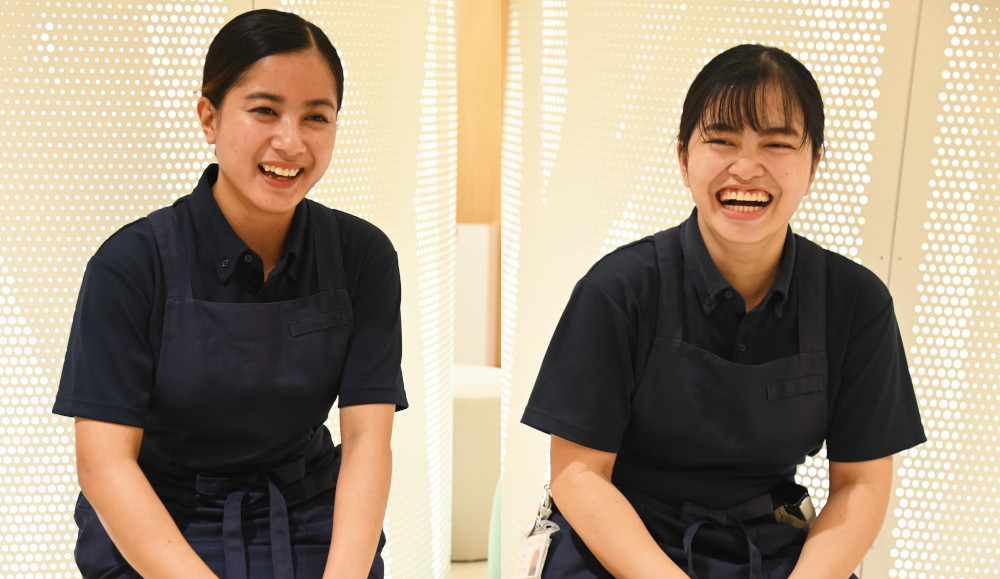Kumamoto Prefecture has around 3000 Filipino residents. Although it is still not well known in the Philippines, Kumamoto Prefecture located in the southwestern part of Japan has a developed urban area that is convenient to live in, and suburbs that are rich in nature. Kumamoto is highly praised by its Filipino residents as a comfortable place to live.
As the number of Filipino residents has increased, public support and private communities have greatly grown and improved in recent years. This means that you will have someone you can rely on when you have a problem. We spoke to an advisor at the “Kumamoto Support Center for Foreign Residents” about the support available to Filipinos and all foreign residents.
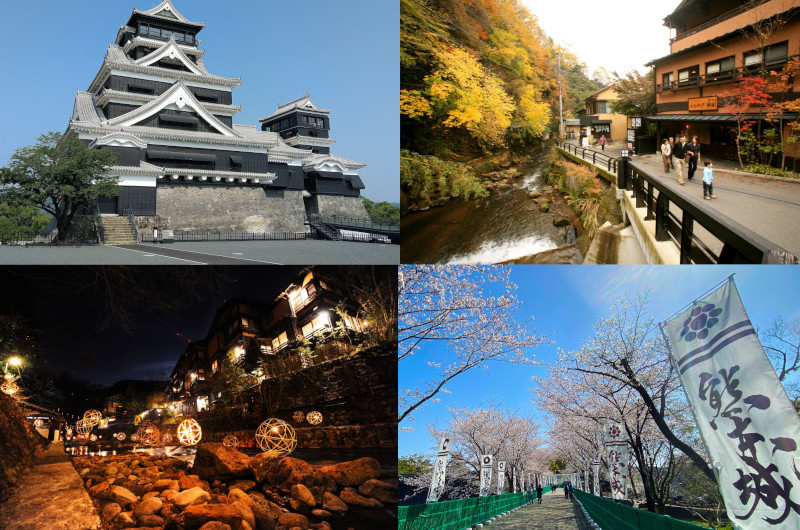
For an introduction to Kumamoto’s beautiful nature and convenient living
environment, read
this article.
Commissioned by Kumamoto Prefecture.
Building A Better Kumamoto for Foreign Residents
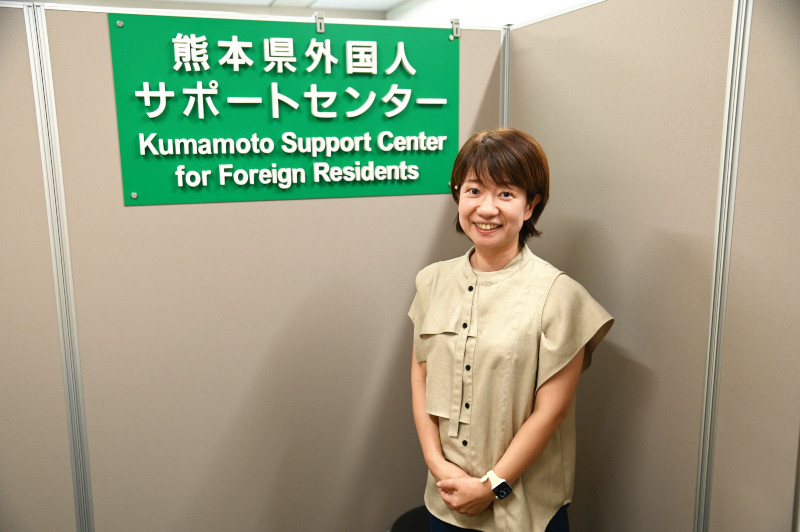
What kind of place is the Kumamoto Support Center for Foreign Residents?
The Kumamoto Support Center for Foreign Residents is a consultation desk established in 2019 to help people from overseas live comfortably and with peace of mind in Kumamoto. You can visit us directly at our office on the 8th floor of the Kumamoto Prefectural Office, by email, by phone, or even through Facebook. We support 21 foreign languages including English and Chinese, so don’t worry if your Japanese is not good.
*A Message from WeXpats: This is a facility for foreign residents living in Kumamoto Prefecture. If you are not a resident of Kumamoto, please refrain from contacting them as their services will not be available to you.
Can I consult about any problems?
Of course. For example, if someone comes to us saying, “I do not understand Japanese but need some help”. Then we can help prepare documents together with them, or act as an interpreter at the counter for them.
Please feel free to use our services for issues such as changing your status of residence, obtaining a driver’s license, or procedures for pregnancy or childbirth. If it’s something you need help with because you don’t know what to do, then feel free to reach out to us.
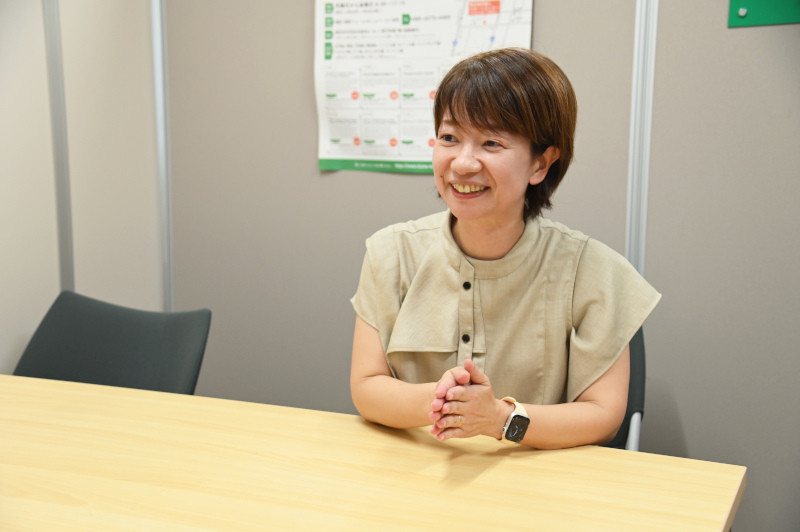
What about personal problems? Like, “I had a quarrel with someone at work”.
We receive a lot of inquiries regarding workplace relationships. Issues like, “I had this kind of trouble at work”, or “I want to change jobs”. Since we are a local government organization, it is difficult for us to introduce new jobs or directly issue warnings to people at their workplace, but we work to resolve problems by cooperating with various external organizations.
If the inquiry is from a technical intern trainee, we will ask the supporting organization to investigate and confirm the facts. There are many technical interns who are not well-versed in Japanese yet and find it difficult to convey their thoughts and requests to people at the company, and as a result problems arise, so it is better to come for advice. We will learn about the situation and respond accordingly.
Who is giving the advice?
Apart from myself (Japanese), we also have consultants from Vietnam and China.
That’s reassuring. Why are you doing this job?
When I lived overseas, I received a lot of help from the local people, so I want to pass on the kindness I received. I want to create opportunities for people from overseas to think “I’m glad to live in Japan”.
It seems like you chose this job based on your own experience. What country did you live in?
A few years after graduating from university, I spent 2 years doing volunteer work in Nigeria as a JICA Japan Overseas Cooperation Volunteer. Nigeria ranks 188th out of 190 countries on the Human Development Index, which measures the standard of living of a country’s citizens. The economy, education, healthcare, and all other sectors in Nigeria are in a state of crisis.
Even so, the people I met in Nigeria were really kind. I was there to help, but instead received help many times from them. Because of the harsh conditions, helping each other has become commonplace. I wonder if this is also influenced by their Islamic cultural background.
Having gone through that experience, I feel that Japanese people are very difficult to get along with from an outsider’s perspective. Various systems are being introduced, and young people in particular have gained awareness as the generations change, but still, we receive lots of inquiries about human relationships.
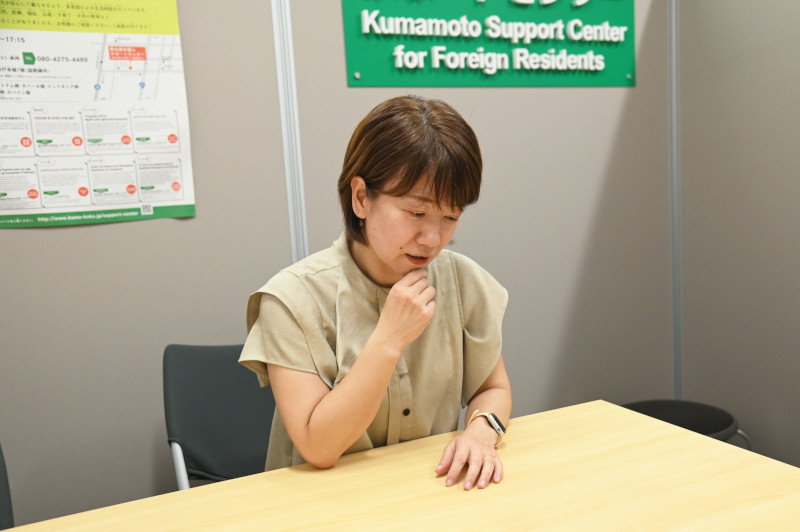
This time, we spoke to Filipinos and people from other countries who are working in Kumamoto. Everyone said that Kumamoto people are kind. What do you think about this?
I’ve also been told that Kumamoto people are kind, but since I’ve lived in Kumamoto for a long time, I guess I’ve gotten used to it and don’t notice it in particular (laughs).
However, I feel a change in these past few years, wherein the number of Kumamoto companies that employ foreign personnel and have established proper principles are increasing.
There are companies that prepare kimonos for their technical intern trainees to participate in the local coming-of-age ceremony (a ceremony held every January in Japan to celebrate coming-of-age), companies that cover the necessary expenses and transportation for qualifications & certifications, or even companies who teach Japanese to foreign staff themselves.
Of course not all companies are like this, but I’m glad that there are more and more places where it’s easy for people from overseas to work .
Is there anything else that you feel is changing for the better in Kumamoto?
In the first place, the number of people from overseas has increased significantly, and as a result, many aspects of the area have changed to make it easier to live here. The number of foreign residents in Kumamoto has more than doubled compared to 10 years ago, with Filipinos alone numbering 3,044. The number of English signs and pamphlets have also been added to various locations.
Communities among Filipinos, and communities for Japanese and Filipinos, are also becoming more active. There are also churches in central Kumamoto, so many people can make friends through their shared religion of Christianity. There are times when we want to send out useful information to Filipinos from our support center, and having the cooperation of these organizations helps spread the word quickly.
It is good to have someone you can rely on outside of work. I hope you can join these organizations when you come to live in Kumamoto. Also, please follow us on our Facebook where we introduce these organizations (laughs).
Lastly, could you share with us your goals as a Support Center staff?
I have always felt that there should be a place where Japanese and foreign nationals can interact naturally and without discord.
Especially for technical intern trainees and specified skilled workers, if all they have are workplace relationships and interactions - a Japanese as the employer, and yourself as the employee - then it will always feel like a hierarchical relationship. Instead, I want to create a place where everybody can interact with one another as equal human beings.
Kumamoto has beautiful oceans and mountains, with a variety of places within just the right travel distance you can visit and sightsee. The central area is flourishing, but not as crowded as metropolitan areas. There are many delicious foods such as ramen, horse meat, seafood, rice, and tomatoes.
There is no doubt that this prefecture is just as attractive to people from other countries as well, so I would like to continue working to improve communication between the people who live here.
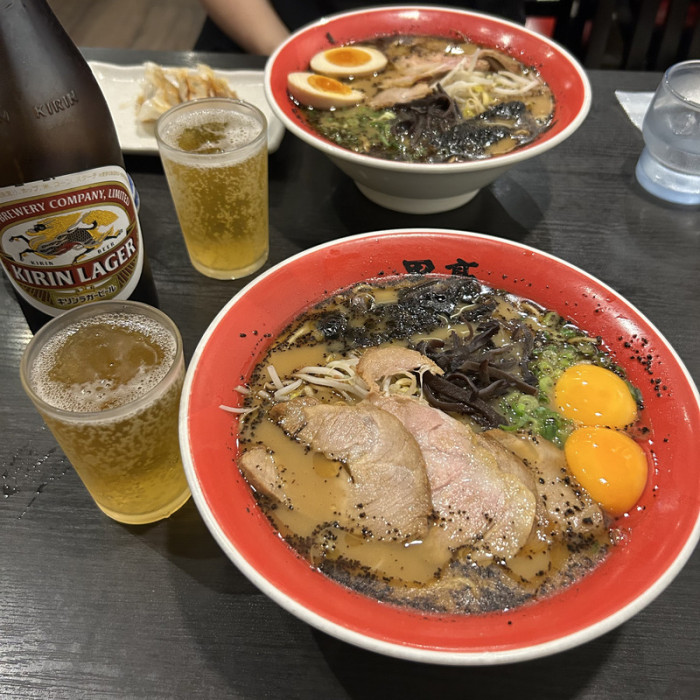
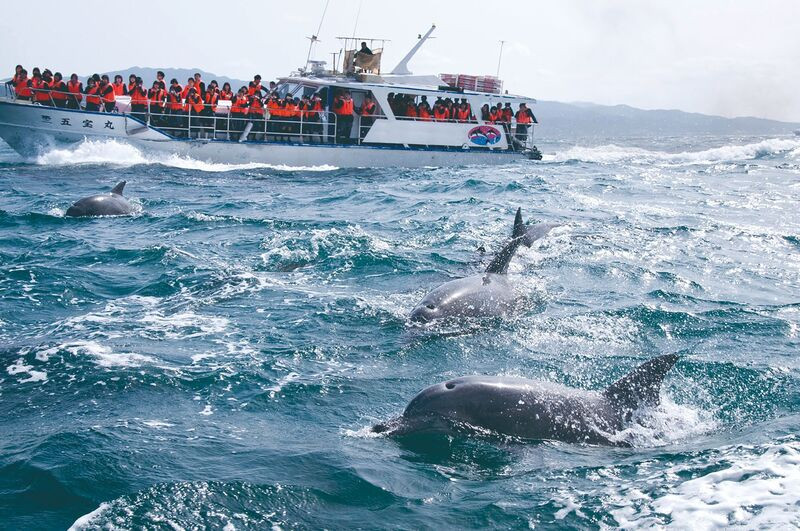

In addition to what we heard in this interview, there are many other initiatives that Kumamoto Prefecture is undertaking to promote multicultural coexistence.
One of them is a free online Japanese lesson for those aiming for JLPT N5 and N4 levels of Japanese (registration for this session is closed). The course does not just teach Japanese, but also includes lessons on daily life, such as “Rules for Trash Disposal in Japan”, which foreign residents often find confusing, and practical knowledge that is difficult to acquire in Japanese classes back at their home countries.
The idea behind these initiatives is the philosphy of continuing to promote the development of a multicultural community, where people of different nationalities and ethnicities accept each other's cultural differences, strive to build equal relationships, and live together as members of the local community.
The aforementioned Japanese language classes had a capacity of 80 people, but it was so popular that around 200 people applied. It shows how many people living in Kumamoto are looking forward to the prefecture’s support.
Kumamoto Prefecture’s slogan is “The Chosen Kumamoto (Kumamoto Chosen by the People)”. If you are unsure where to visit in Japan, or if you are already living in Japan and are considering a career change, then consider adding Kumamoto to your options in addition to famous cities such as Tokyo.

Web page for those who want to know more about Kumamoto
Check out this interview article with Filipinos working in Kumamoto!

Check out Kumamoto’s beautiful nature and convenient living environment
here!
©Kumamoto Prefectural Tourism Federation
